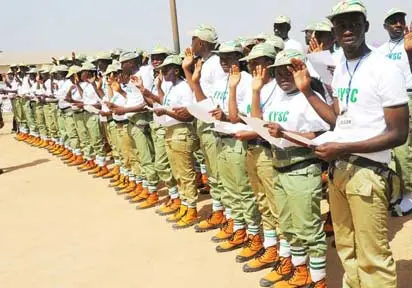Last week, the Kano State Coordinator of the National Youth Service Corps, NYSC, Mr. Sanusi AbdulRasheed, lamented that 89% of corps members in the country, could neither write a good letter of application nor communicate effectively in the English language. According to AbdulRasheed, “the NYSC researched into what (the corps members) were writing in the form of applications for one thing or the other.
The management noted that about 89percent of NYSC members could not write a good application”. The situation is so pathetic that the Corps chief advised that the corps members he addressed (who were actually passing out from the year-long programme), should “not feel too big”, but should “go and buy primary and secondary school books”, in order to learn the rudiments of how to write good applications.
These frightening outcomes of a research had been released to corps members preparing to enter the jobs market in the country. Mr. AbdulRasheed cited an instance when “a majority of (the corps members) start writing application with their name like: ‘I, Sanusi AbdulRasheed, hereby…’. It was also noticed that the majority of the corps members “were more at home with the use of ‘broken English’, as a means of communication”.
In short, what the Kano NYSC chief was saying is that Nigeria’s “generation next” is ill-equipped for the business of building our country.
They neither possess the basic tools of communicating their thoughts nor are they able to write sensibly to get a look-in, in the very competitive world of work! Most employers of labour, today, quietly lament the serious deficits in the quality of young graduates entering the job market. The quality is so bad that one doesn’t know how to recruit.
Let me illustrate. This situation that the NYSC chief was lamenting in Kano last week, has been with us for many years. When I worked as GM at KWTV, I once asked a youth corps member attached to my office to do a draft letter for me, which I was to take to government, because I was working on a much larger document. A few hours later, I asked for the draft and what I got did not make sense whatsoever!
The writer could not have attended a university as far as I was concerned but the candidate was on national service! As Editor of a newspaper, I also saw the level of deficiency in the quality of reports that reporters would file. We would have to get much more experienced people to re-write basic copies that made no sense. I had lamented the situation for years, until I started receiving reports that a lot of these individuals actually purchased their ways through school.
They will offer money and other gifts to lecturers, while Professor Okello Oculli, once told me of the prevalence of STDs in Nigerian universities, but he had actually meant: “Sexually Transmitted DEGREES”! A lot of the young people do not even have the basic background of learning to be in school in the first place, while they are often loathe to doing the hardwork which intellectual exertion entails.
And because this trend has been with us for a very long time, there is a gradual erosion of ability to communicate all around us. In truth, the level of spoken and written English (and other languages) has dropped dangerously in Nigeria.
It is not unusual to meet top people speaking very outlandish English; they mix up basic tenses, revealing the depth of illiteracy around us. During the 2011 elections, INEC employed intellectuals as returning officers and on television professors were announcing that: “My names are…”.
Nigeria is hurtling through a sorry pass in practically every area of endeavour. We seem to go for the lowest common denominator in many choices we make, and the 89% of youth corps members unable to either communicate properly in the official language of education and of work, only reflect the national malaise while underlining the dim future the country faces! In the past five years, there has been a steady build-up of failure in schools’ certificate examinations.
Such a serious deterioration should have been at the heart of a national endeavour of restitution, but those whose responsibility is to lead action for change don’t seem bothered. We can ask many pertinent questions about the morass we are in today. For instance, how can students work and learn adequately within decayed university systems where facilities have remained literally in a time warp?
What about the incessant strikes by academics occasioned by the irresponsibility of a government that signs agreements but reneges in implementation? Why are academics complicit in the systematic subversion of processes by passing students who have no business in the schools system?
And don’t parents assist in inducing teachers for their children to get degrees they haven’t truly earned? The questions are many indeed! We face the danger of not having the requisite levels of human development to win the battle against underdevelopment and it is clear that the problem is already suffocating our social space.
When 89 percent of youth corps members cannot write a decent letter of application for employment, then something is truly wrong with our country!


